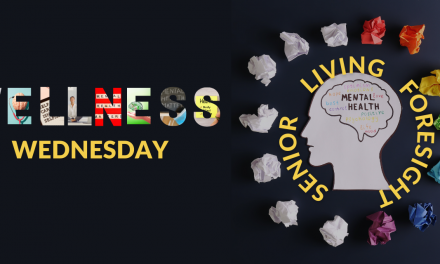By Jack Cumming
Those simple words, attributed to Maria Shriver, can change our lives. We are born into a world of egos. Strong, ebullient people vie with each other to be the center of attention, our attention. Often, we simply give them what they crave regardless of the moral values they exhibit or, alternatively, the immorality they display.
We are also born into a world that others have created. It’s a beautiful world. It’s appropriate that we begin, and often end, life in a state of utter dependence. By our nature, we are not self-made. We stand on the shoulders of those who came before us and who have shaped us throughout our lives. In turn, generations to come benefit from our gifts to them. The higher we lift them, and the more accepting they are of those gifts, the better our world can become. We are each other.
Restart
Is your purpose filled with people you love and to whom you give comfort? What a beautiful calling. Can you reverse the roles so that you can be the one who is loved and comforted? In that harmony of the souls, there is liberation and strength. Role reversals and paradoxes are part of our human journey.
I remember visiting my son’s third-grade class. The teacher was teaching long division at the blackboard.
The pupils, 23 of them, were arrayed in neat rows in front of her. She was talking. They were supposed to be listening. My observation, though, was that many of them were pretending to listen.
I tried to imagine the adventures on which their wandering minds had taken them. In my imaginings, the pupils were center stage in their daydreams. Their roles with the teacher were reversed. They weren’t being taught. They became learners.
Influence
That was more than 50 years ago. Today, one of those mind-wanderers sits on the U.S. Supreme Court. Another is a former governor of New York state. That’s a profound reversal of the power balance in that long-ago classroom. Without knowing it, that teacher was influencing future Supreme Court deliberations and New York state governing policy.
It was a class for “gifted” children at New York’s Hunter College. I’m sure that teacher loved and supported those youngsters. Her influence as a third-grade teacher turned out to have more impact than she might have imagined. I wonder how it might have worked out if the pupils had worked with each other to learn long division, as some do now with “the flipped classroom,” instead of being taught.
Human Harmony
You are special in ways that you may never realize yourself. If you’re lucky, you have a boss whom you admire and who pitches in to help you when you’re stuck. Ideally, you are part of a self-supporting team that needs no leader because you simply pitch in together with love of mission.
As organizations move from such open-spirited mutuality toward more structure, individual satisfaction gives way to enterprise aggrandizement. That is often very different from the originating mission. Cooperative engagement is much more likely in newly formed organizations and enterprises. It’s very difficult to maintain in long-established entities. With time, collegiality often, maybe usually, becomes inhibiting structure.
You are blessed if you have a mission beyond your person. You are doubly blessed if your personal mission conforms with the mission that gives you a livelihood. Mutual engagement and commitment to a goal beyond ego can be one of the most satisfying human allegiances that life provides.
Liberation
Some people draw a feeling of importance by being at the top of the heap in a hierarchical organization in which promotion is the mark of achievement. That feeling, though, is very shaky. The one at the top may be the most insecure of all. Shakespeare captured that pearl of wisdom in very simple terms: “Uneasy lies the head that wears a crown.”
We are at our best when we don’t judge others. An employee who leaves a company may be expressing a wiser truth than the chieftain who remains. Often people leave a company because it’s drifted from its mission or because a boss treats them disrespectfully.
We counsel people leaving employment to give their employer their very best right up to the last day. We also counsel them to never leave angry and never to “burn their bridges.” Things can change and you may become the instrument of that change. One day, you may be asked to return to give those the company serves the better experience they deserve.
Likewise, companies should leave the door of return open to those who leave. It can seem disloyal for an employee to leave. It’s unlikely that, in the exit interview, they tell you their real reason for leaving. The time may come when the culture and the leadership shifts, and the employee who left may be the perfect fit to restore the enterprise to what it should have been.
Beyond the Board
While we expect boards to make sure that corporate actions are mission supportive, very few boards ever intervene if the accounting numbers are on course. Leading an enterprise, however, requires more than just slick accounting. Creating a culture in which all people matter equally requires a culture of oneness. Oneness among leaders and workers. Oneness among those for whom the business exists and those who earn their livelihood from the business. Oneness with all.
We are all one people, and that oneness and mutuality is a strength that surpasses self-importance. The best bosses lead a group of equals. It’s an ancient concept demonstrated by a language of antiquity as “primus inter pares,” “first among equals.” What a wonderful world it would be if more corporate chieftains saw themselves as equals.
We are all each other. We are human, and we share the common dignity of our humanity.







